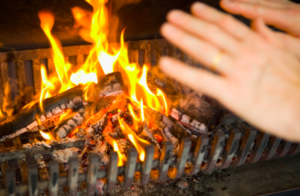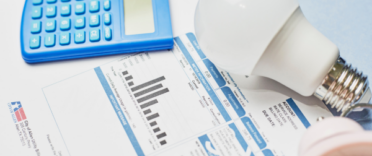 As we head into winter and start to think about keeping our homes warm, many will struggle to meet the extra cost, especially as energy tariffs continue to remain high. However, support is available from the UK government under four different schemes which can help to subsidise the cost of gas and electricity during the colder months.
As we head into winter and start to think about keeping our homes warm, many will struggle to meet the extra cost, especially as energy tariffs continue to remain high. However, support is available from the UK government under four different schemes which can help to subsidise the cost of gas and electricity during the colder months.
It is important to understand if you are eligible, and the amount you could be entitled to, if you decide you want to apply for a grant to help pay for your energy bills. In this article, we list the four different government-backed grants available, their qualifying criteria, and how much money each one could save you over the course of a year.
Warm Home Discount
What is the Warm Home Discount?
The Warm Home Discount scheme provides a one-off discount of £150 off your electricity bill. You do not receive the discount personally, as it is provided on behalf of the government to your supplier, enabling them to apply the discount to your bill. It will not affect your Cold Weather Payment or Winter Fuel Payment.
Who is eligible for the Warm Home Discount?
You may qualify for the Warm Home Discount if you are either:
- Receiving the Guarantee Credit element of Pension Credit or;
- If all of the following applied on 11th August 2024:
- You or your partner get certain tax credits or means-tested benefits
- Your property has a high energy cost score based on it's characteristics
- Your energy supplier is part of the scheme, see the list of suppliers who are here
- Your or your partner's name is on the electricity bill
How to apply for the Warm Home Discount
If you are eligible for the Warm Home Discount you should automatically have the discount applied to your energy bills if you live in England and Wales. If you live in Scotland and get the Guarantee Credit element of Pension Credit you should also automatically have the discount applied to your energy bills. If you meet the other criteria you will need to contact your energy supplier to apply for the discount and unfortunately there are limited spaces available.
For more information on the Warm Home Discount, eligibility and how to apply, read our article, 'Warm Home Discount Scheme - how to get £150 off your energy bill'.
Winter Fuel Payment
What is the Winter Fuel Payment?
The Winter Fuel Payment is an annual one-off payment of between £200-£300 made by the government to assist with the extra fuel costs over the winter period. It is not available in Scotland, however the Scottish Government plans to provide a similar payment and if you are eligible you will receive this from the DWP.
Payment is usually made automatically in November or December, but no later than 29th January 2025 and the payment will not be taxed nor will it impact any other benefits you receive.
Who is eligible for the Winter Fuel Payment?
You may qualify for the Winter Fuel Payment if you meet the following:
- You were born before 23rd September 1958
- You live in England or Wales
- You receive one of the following benefits and had been during the qualifying week (16-22 September 2024):
- Universal Credit
- Pension Credit
- Income Support
- Child Tax Credit
- Working Tax Credit
- Income-related Employment and Support Allowance (ESA)
- Income-based Jobseeker's Allowance (JSA)
Who is not eligible for the Winter Fuel Payment?
You will not receive the Winter Fuel Payment if you:
- have been in hospital getting free treatment for more than one year
- were in prison for the 7 days of the qualifying week (16-22 September 2024)
- were living in a care home for the entirety of the period 24th June to 22nd September 2024
- live in Scotland
If you do not live in the UK you may still be eligible for the Winter Fuel Payment if you meet the following criteria:
- You were born before 23rd September 1958
- You get UK State Pension
- You moved to an eligible country prior to 31st December 2020
- You have a 'genuine' link to the UK, such as having lived or worked in the UK or having family in the UK
- Your benefits are paid by the UK
How much Winter Fuel Payment you could receive
The amount of Winter Fuel Payment you will receive will depend on your circumstances. You will receive a letter in October or November advising you of the amount you will get.
If you live alone and were born between 23rd September 1944 and 22nd September 1958 you will receive £200, if you were born before 23rd September 1944 you will receive £300.
If you and your partner jointly claim any of the qualifying benefits, one of you will get £200 if one or both of you were born between 23rd September 1944 and 22nd September 1958, and one of you will get £300 if one or both of you were born before 23rd September 1944.
If you live in a care home and were born between 23rd September 1944 and 22nd September 1958 you will receive £200, if you were born before 23rd September 1944 you will receive £300. However to be eligible for this payment you must receive certain benefits and have lived in a care home for less than 13 weeks including the qualifying week (16-22 September 2024).
How to apply for the Winter Fuel Payment
You do not need to apply for the Winter Fuel Payment and should receive it automatically if you are eligible. If you are unsure if you are eligible you can contact the Winter Fuel Payment Centre on 0800 731 0160 or via an email enquiry form.
Cold Weather Payment
The Cold Weather Payment is a government scheme which pays £25 for each 7 consecutive days of very cold weather between 1st November and 31st March. The payment is triggered if the average temperature in your area is either recorded as, or forecast to be, 0°C or below over a 7-day period.
Who is eligible for the Cold Weather Payment?
You may be eligible for a Cold Weather Payment if you are eligible for any of the following:
- Pension credit
- Support for Mortgage Interest (SMI)
- Income Support and Income-Based Jobseeker's Allowance
- Income-Related Employment and Support Allowance (ESA)
- Universal Credit
- Income Support
If you live in Scotland and are eligible you will receive the Winter Heating Payment. This is an annual payment that will be paid automatically to those who qualify. The payment for December 2024 is £58.75. Unlike the Cold Weather Payment, the Winter Heating Payment is paid regardless of weather conditions or temperatures.
Further eligibility details
There are some additional caveats that you should be aware of.
If you are receiving Income Support and Income-based Jobseeker's Allowance, then at least one of the following must apply:
- You have a disability or pensioner premium
- You have a child who is disabled
- You receive Child Tax Credit that includes a disability or severe disability element
- You have a child under 5 living with you
If you are receiving Income-Related Employment and Support Allowance, then at least one of the following must apply:
- You have a severe or enhanced disability premium
- You have a pensioner premium
- You have a child who is disabled
- You receive Child Tax Credit that includes a disability or severe disability element
- You have a child under 5 living with you
If you are receiving Universal Credit and you are not employed or self-employed, then at least one of the following must apply:
- You have a health condition or disability and have limited capability for work (with or without work-related activity)
- You have a child under 5 living with you
You will also be eligible for a Cold Weather Payment if your Universal Credit claim includes a disabled child amount, whether you are currently employed or not.
More information on the Cold Weather Payment eligibility criteria can be found here.
Household support fund
What is the household support fund?
The household support fund is a government initiative designed to help those facing financial hardship. Funds are allocated to councils across England with the aim of providing financial assistance to vulnerable households for essential expenses like food, utilities, and clothing.
Who is eligible for the household support fund?
Eligibility for the household support fund is managed by individual councils and local authorities. This means that the application process can vary depending on your location and financial circumstances. If you are worried about heating your home or affording essential items during the winter months, it’s worth reaching out to your local council to explore what assistance may be available.
Household support fund eligibility examples:
Eligibility criteria are set by individual councils and local authorities; however, those who qualify may include:
- Individuals receiving Universal Credit, Working Tax Credits, or Council Tax Support
- Pensioners
- Disabled people, including children
- Those with health conditions worsened by the cold (such as severe asthma, sickle cell anaemia, COPD, or cardiovascular disease)
You can read more in our article 'Household support fund extended for a further 6 months'.
What to do if you are struggling to pay your energy bill
If you're struggling to pay your energy bills we share some steps you can take to try and stay on top of your debt. For more tips read our article, 'What to do if you’re struggling to pay your energy bills'.
1. Contact your supplier
As soon as you feel you are struggling to pay your energy bills, you should contact your supplier to discuss ways to pay what you owe them in a timely and achievable manner. Your supplier is obliged to help to find a solution. You should only agree to a solution that works for you.
2. Agree a payment plan with your supplier
Your supplier must help you to find a solution to paying off your current debt and factor in the cost of future estimated use. You should make your energy bill debts a priority over other debts, and if you cannot reach an agreement, then your supplier may insist on fitting a pre-payment meter in your home.
3. What to do if you cannot agree on a payment plan
It is very unusual not to be able to agree on a payment plan, but if this is the case, ask your energy supplier if they can provide any more help. For example, fitting a pre-payment meter that many find a more convenient way of paying for their energy, or finding out if you may be able to get a grant from a charitable trust to help to pay your energy bill. You can also contact Citizens Advice who will provide help in advising you on how to deal with debt. You can find further help in our article 'Where to get free debt advice'.
How to reduce your energy bill
Below we list some tips on how to reduce your energy bill but for more money-saving tips read our article, 'How to save money on your energy bills'.
1. Control your thermostat
You could cut your heating bills by turning down your thermostat by just 1°C. You can do this by fitting radiator thermostats that allow you to control the temperature in each room separately, so you can reduce the cost of heating rooms that may not be being used, which could cut hundreds off your bill by the end of the year.
2. Get your boiler serviced
An inefficient boiler not only results in poor heating within your home but will also increase your energy bills. A regular boiler service saves you money but also gives you peace of mind that you're less likely to be left without any gas or electricity during the cold winter months.
3. Insulate your home
Consider investing in loft and cavity wall insulation, as this will reduce the amount of heating you lose through your roof and walls, and therefore reduce your energy bills. The Energy Saving Trust has a helpful list of suggestions on how to reduce heat loss in your property.
4. Install energy-efficient appliances
Switching to energy-saving lightbulbs or using energy-efficient appliances could help to save money on your energy bill. In addition, ensure your dishwasher and washing machine is full before turning it on and try to use the eco settings where possible.





